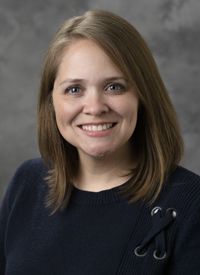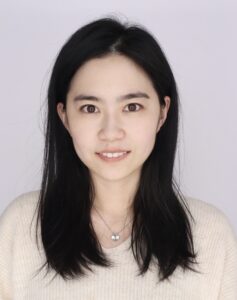Smith awarded Purdue’s highest undergraduate teaching honor
Purdue chose Jennifer Smith, associate clinical professor of special education, as one of the five 2024 Charles B. Murphy Award winners.
Read MoreOur nationally known faculty are engaged in the discovery, application, and dissemination of new knowledge centered on three key themes: Educating Diverse Learners, STEM Learning, and Effective Teaching.
We pride ourselves in preparing students for positions as university professors, researchers, special education professionals, counseling psychologists, and testing, measurement and evaluation specialists. Our graduates work in schools, higher education, and private industry.
Purdue chose Jennifer Smith, associate clinical professor of special education, as one of the five 2024 Charles B. Murphy Award winners.
Read MoreThis Department of Educational Studies recognition is for those who have gone above and beyond their roles or shown support and/or positive attitudes even in difficult situations. The nominations need to include concrete examples of such behaviors (e.g., random acts of kindness).

This recognition is particularly triggered after I learned that she agreed to serve on two additional search committees this past week in our department. Jennifer served/is serving in total on 6 searches: 2 for Special Education (co-chaired one of them with Denise Whitford), 2 for CPSY and 2 for Ed Psych. She agreed to these commitments in addition to the 5 courses she’s teaching (had to take two overloads), serving as an undergraduate coordinator for SPED and participating in I2 leadership and additional tasks. While I know many of us go beyond the call of duty while at the same time being buried with work, I want to recognize Jennifer for modeling a spirit of collegiality, teamwork, and willingness to ensure that the needs of students, our programs and our department are met, and doing it all with a big smile, positive attitude, and happy decorations on her door J.
Jennifer, congratulations for receiving EDST Citizen Award – February 2022!
Welcome to Educational Studies (EDST)!
The Department of Educational Studies (EDST) is home to six program areas: Counseling and Development; Gifted, Creative, and Talented Studies; Educational Leadership and Policy Studies; Educational Psychology and Research Methodology; Special Education; and Online Special Education. EDST is also home to the Purdue Counseling and Guidance Center (PCGC), the Gifted Education Research and Resource Institute (GER2I), and the Purdue University Psychometric Investigation Lab (PUPIL).
Our mission is to discover and develop human potential in diverse learning environments through excellence in research, teaching, and engagement. We pride ourselves in preparing students for positions as university professors, researchers, special education professionals, educational administrators and leaders, counseling psychologists, and testing, measurement, and evaluation specialists. Our graduates work in schools, higher education, and private industry.
Welcome to Purdue and the Department of Educational Studies! My door is always open if you have questions or concerns. The main EDST office is on the fifth floor of Beering Hall, Room 5108.
Christine Kiracofe
Department Head

Dr. Qi Huang is an Assistant Professor of Educational Psychology and Research Methodology in the Department of Educational Studies.
Read more about Dr. Qi Huang
Why did you choose a career at Purdue’s College of Education?
Purdue’s COE is reputable, collegial, and provides generous support to junior faculty. In addition, West Lafayette is a great place to raise a family.
Describe a research project you have completed.
A research project I have been working on focuses on the Unipolar Item Response Model, which offers a new perspective on scoring metrics. I find it to be a better model representation than traditional IRT for certain educational constructs in reading and vocabulary.
Are there any recent or forthcoming publications you are excited about?
Yes, I’m excited about a paper currently under revision, which is the second in a series of publications from the above-mentioned unipolar IRT project. Additionally, I’m thrilled about my recent publication in Alzheimer’s & Dementia, which highlights the value of psychometric techniques in Alzheimer’s disease and dementia research.
What do you enjoy doing when you’re not conducting research?
During my leisure time, I love spending time with my cats. I also enjoy cooking, baking, and trying my hand at being a barista (my latte art is still more ‘abstract’ than ‘art’).

Samira Bashiru is a third-year doctoral candidate studying Special Education in the Department of Educational Studies. Her major professor is Dr. Jennifer Smith.
Read more about Samira Bashiru
Where are you from, and what did you do prior to your PhD program?
I am originally from Ghana. Before my PhD, I earned a Bachelor of Education in Early Childhood from the University of Education Winneba in Ghana and a Master of Science in Special Education at Purdue University. I then worked as an instructor and practicum coordinator at NorQuest College in Edmonton, Alberta, Canada, focusing on Disability Studies and Early Learning and Childcare.
Why did you choose Purdue and your area of concentration?
Purdue’s strong research focus and commitment to inclusive education drew me in. I am passionate about supporting students with disabilities and preparing educators to foster inclusive classrooms.
What are your areas of research interests? What led to your interest in these areas?
My research focuses on creativity in preschoolers with and without speech disorders, as well as best practices for English learners with disabilities. My background in early childhood education and my commitment to equity in learning experiences inspired these interests.
Tell us about your prior research experience.
Yes, I have published research and presented it at national and international conferences. My work includes systematic reviews, book chapter and empirical studies on creativity in children with disabilities, teacher-student relationships, English language learners and special education practices.
Where do you hope to be in 5 years?
I hope to be a faculty member in higher education, leading impactful research and advocating for inclusive educational policies.
What advice do you have for other new fellow graduate student researchers?
Build a strong support network, seek mentorship, and embrace collaboration. Stay curious and persistent. Research is a journey, so celebrate small wins along the way!